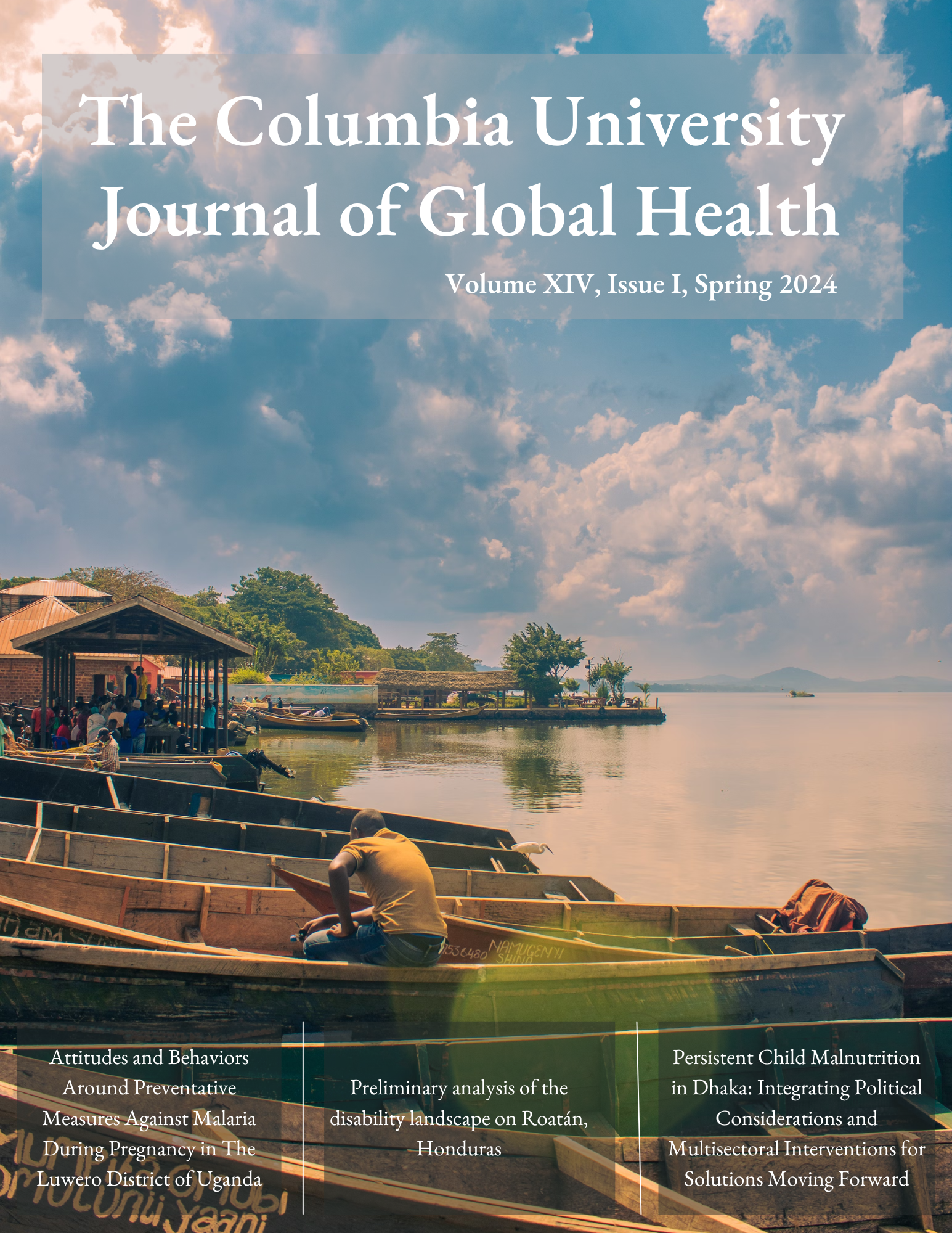Persistent Child Malnutrition in Dhaka: Integrating Political Considerations and Multisectoral Interventions for Solutions Moving Forward
Main Article Content
Abstract
One of the world’s most densely populated cities in the World, Dhaka continues to grapple with its persisting challenge of child malnutrition. While food shortages, food insecurity, and inadequate feeding practices contribute to child malnutrition, various social and economic determinants, including maternal education, family household income, and geographic residence further exacerbate the problem. While existing interventions like the Health Sector Support Project and National Nutrition Programme have made strides in reducing short-term and long-term child malnutrition, challenges such as insufficient coverage hamper its overall scope and effectiveness. In order to address issues hampering funding capacity and the breadth and quality of nutrition-related services, it is necessary to understand the factors affecting them, including political commitment toward child nutrition, policy alignment, program design and implementation, monitoring and evaluation, and intervention strategies and service delivery. Moving forward, comprehensive strategies taking into account political prioritization, multisectoral coordination, and targeted primary intervention strategies are crucial for tackling child malnutrition effectively in LMICs and cities like Dhaka and beyond.
Article Details

This work is licensed under a Creative Commons Attribution 4.0 International License.

